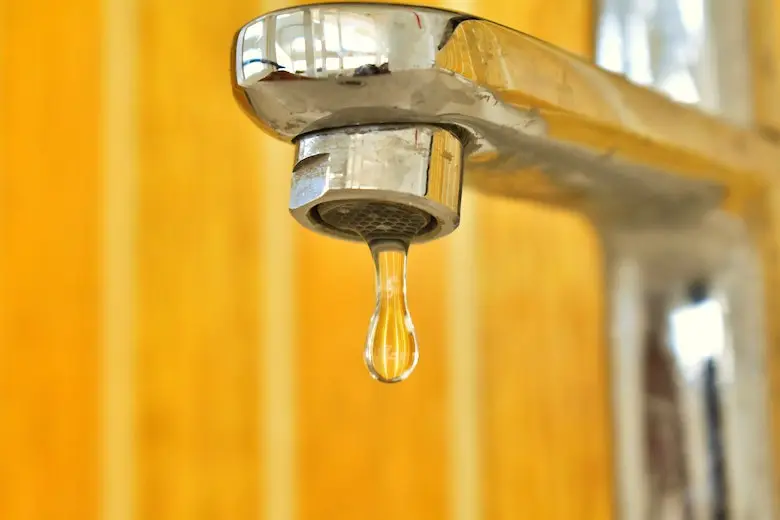Access to clean and reliable water is a fundamental necessity for communities and individuals worldwide. As such, choosing the right water supplier is a crucial decision that can have significant implications for efficiency, sustainability, and reliability. In this article, we will explore the key factors to consider when evaluating water suppliers and provide insights to help you make an informed choice when doing a water supplier comparison.

Table of Contents
1. Efficiency
Efficiency is an essential aspect of any water supply system. It refers to the ability of a water supplier to deliver water in a cost-effective and timely manner. Several factors contribute to the efficiency of a water supplier, including infrastructure, technology, and management practices.
Infrastructure
An efficient water supplier should have a well-maintained infrastructure that minimizes water loss through leaks, pipe bursts, and inefficient distribution networks. Upgrading and investing in modern infrastructure can significantly improve efficiency and reduce operational costs.
Technology
The adoption of innovative technologies such as smart meters, remote sensing, and data analytics can enhance the efficiency of water supply systems. These technologies enable real-time monitoring, early leak detection, and effective demand management, leading to optimized water distribution and reduced wastage.
Management Practices
Efficient water suppliers employ sound management practices to streamline operations and maximize resource utilization. This includes effective planning, proactive maintenance, and continuous improvement initiatives. Regular audits and performance evaluations can help identify areas for improvement and drive efficiency gains.
2. Sustainability
Sustainability is a critical consideration when evaluating water suppliers. It encompasses environmental, social, and economic aspects that ensure the long-term availability and quality of water resources. A sustainable water supply system minimizes negative impacts on ecosystems, promotes community engagement, and balances water needs with resource preservation.
Water Sources
Sustainable water suppliers prioritize diverse water sources to reduce dependence on a single supply. This includes exploring alternative sources such as rainwater harvesting, groundwater recharge, and wastewater recycling. By diversifying water sources, suppliers can minimize the strain on freshwater ecosystems and reduce the vulnerability to climate change.
Water Treatment
Adopting sustainable water treatment practices is crucial for protecting water quality and minimizing environmental impact. Suppliers should employ advanced treatment technologies that remove contaminants effectively while minimizing the use of chemicals and energy. Promoting research and development in sustainable treatment methods can lead to continuous improvements in water quality and conservation.
Water Conservation
Encouraging water conservation among consumers is a key component of sustainability. Suppliers can implement educational programs, awareness campaigns, and pricing structures that incentivize responsible water use. Additionally, promoting water-efficient appliances, fixtures, and landscaping practices can significantly reduce overall water demand.
3. Reliability
Reliability is the assurance of continuous and uninterrupted water supply. A reliable water supplier ensures that water is available when and where it is needed, even during periods of high demand or emergencies. Reliability is influenced by factors such as infrastructure resilience, redundancy, and emergency response capabilities.
Infrastructure Resilience
Reliable water suppliers invest in resilient infrastructure that can withstand natural disasters, climate change impacts, and other disruptions. This includes implementing measures such as backup power systems, redundancy in supply networks, and robust storage facilities. By prioritizing infrastructure resilience, suppliers can minimize service interruptions and quickly restore water supply in the event of disruptions.
Emergency Preparedness
Adequate emergency response plans and protocols are crucial for maintaining a reliable water supply. Suppliers should have contingency plans in place for various scenarios, including equipment failures, severe weather events, and public health emergencies. Regular drills and training exercises ensure that staff are well-prepared to respond effectively during crises.
Customer Service
A reliable water supplier places a strong emphasis on customer service and communication. They provide timely updates on any planned maintenance or service interruptions and have mechanisms in place to handle customer queries and complaints promptly. Transparency and responsiveness build trust and enhance the overall reliability of the water supply system.
4. Water Quality
Water quality is a crucial factor to consider when comparing water suppliers. Clean and safe water is essential for human health and well-being. Suppliers should adhere to strict regulatory standards and employ effective monitoring and treatment processes to ensure the delivery of high-quality water.
Regulatory Compliance
A reputable water supplier complies with local, national, and international water quality regulations. They conduct regular testing and analysis to ensure that the water supplied meets or exceeds the required standards for various contaminants, including bacteria, chemicals, and heavy metals.
Treatment Processes
Suppliers should implement robust treatment processes that effectively remove contaminants and maintain water quality. Advanced treatment technologies such as filtration, disinfection, and chemical dosing are commonly used to remove impurities and ensure the safety of the water supply. Transparency regarding treatment methods and monitoring results is vital to instill confidence in the water quality.
Consumer Reports and Feedback
Consumer reports and feedback play a crucial role in evaluating water quality. Organizations like the Environmental Protection Agency (EPA) or local water authorities often provide information on water quality testing results and any reported violations. Additionally, seeking feedback from existing customers can offer insights into their experiences with water quality and the supplier’s responsiveness to concerns.
5. Affordability and Pricing
Affordability is an important consideration for individuals and communities when selecting a water supplier. Pricing structures should be fair, and transparent, and reflect the true cost of providing reliable and high-quality water. It is essential to evaluate not only the current pricing but also any potential long-term cost implications.
Cost Comparison
Comparing the cost of water from different suppliers is crucial to understanding affordability. This includes considering factors such as the base rate, volumetric charges, and any additional fees or surcharges. It is also important to assess how the pricing structure may change over time, including the potential impact of inflation or infrastructure upgrades.
Value for Money
Affordability should be balanced with the value provided by the water supplier. Consider factors such as water quality, reliability, customer service, and any additional services offered. A supplier that offers higher-quality water, reliable service, and responsive customer support may provide better value for a slightly higher price.
Assistance Programs
Some water suppliers offer assistance programs for low-income households or those facing financial hardships. These programs can help ensure access to clean water for all community members. It is worth investigating if the supplier has any such programs in place and what eligibility criteria apply.
6. Environmental Stewardship
Environmental stewardship focuses on the water supplier’s commitment to minimizing environmental impact and promoting sustainable practices. Choosing a supplier that prioritizes conservation, ecosystem protection, and environmental responsibility contributes to a healthier planet and ensures the long-term sustainability of water resources.
Energy Efficiency
An environmentally conscious water supplier implements energy-efficient practices throughout its operations. This includes utilizing energy-efficient equipment, optimizing pumping and treatment processes, and exploring renewable energy sources. Minimizing energy consumption reduces carbon emissions and contributes to a greener future.
Ecosystem Protection
Water suppliers should demonstrate a commitment to protecting freshwater ecosystems. This includes implementing measures to minimize the impact of water abstraction, ensuring adequate flow regimes for rivers and wetlands, and supporting habitat restoration initiatives. Collaborating with environmental organizations and stakeholders can foster sustainable water management practices.
Sustainable Partnerships
Partnerships and collaborations with other organizations and stakeholders can amplify the environmental impact of a water supplier. Engaging with local communities, conservation groups, and government agencies can lead to shared efforts in watershed protection, water conservation campaigns, and educational initiatives. Transparent reporting on environmental initiatives and progress is a positive sign of a supplier’s commitment to environmental stewardship.
Conclusion
When comparing water suppliers, evaluating factors such as efficiency, sustainability, reliability, water quality, affordability, and environmental stewardship is essential. Making an informed choice ensures that individuals and communities receive clean, reliable water while supporting sustainable practices that protect water resources for future generations. By considering these factors holistically, we can foster a resilient and environmentally responsible water supply system.











Leave a Reply